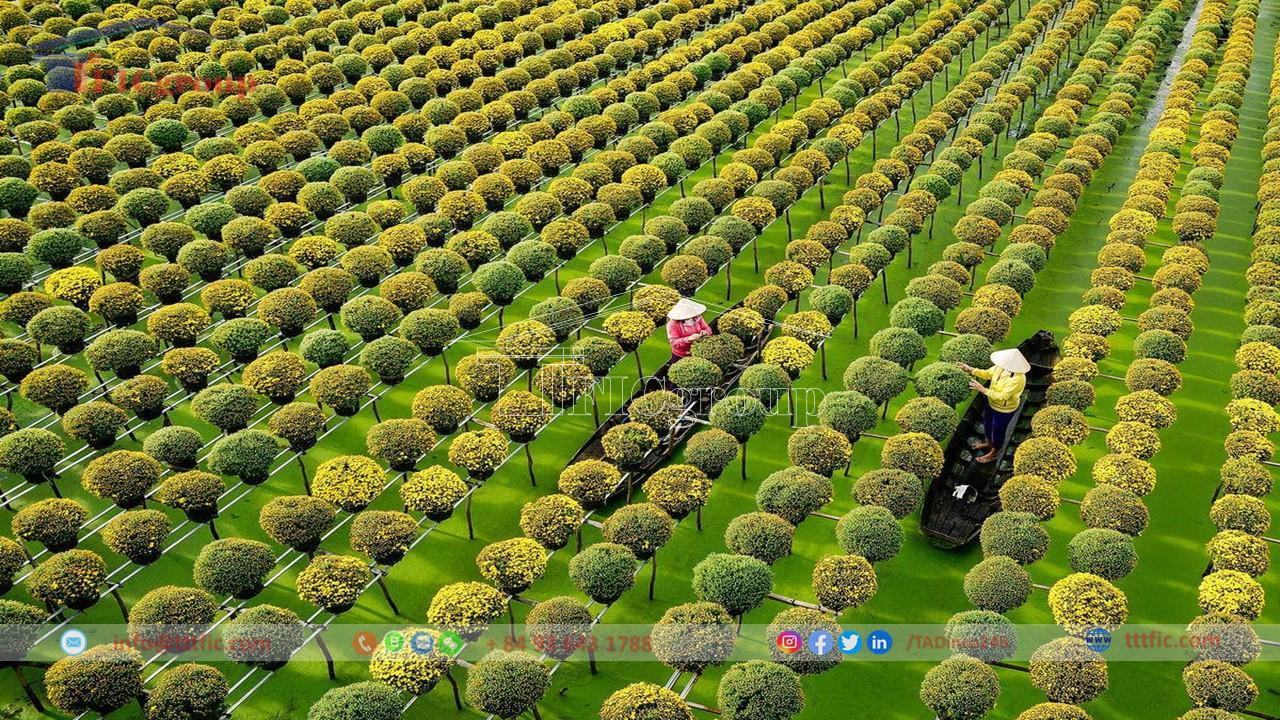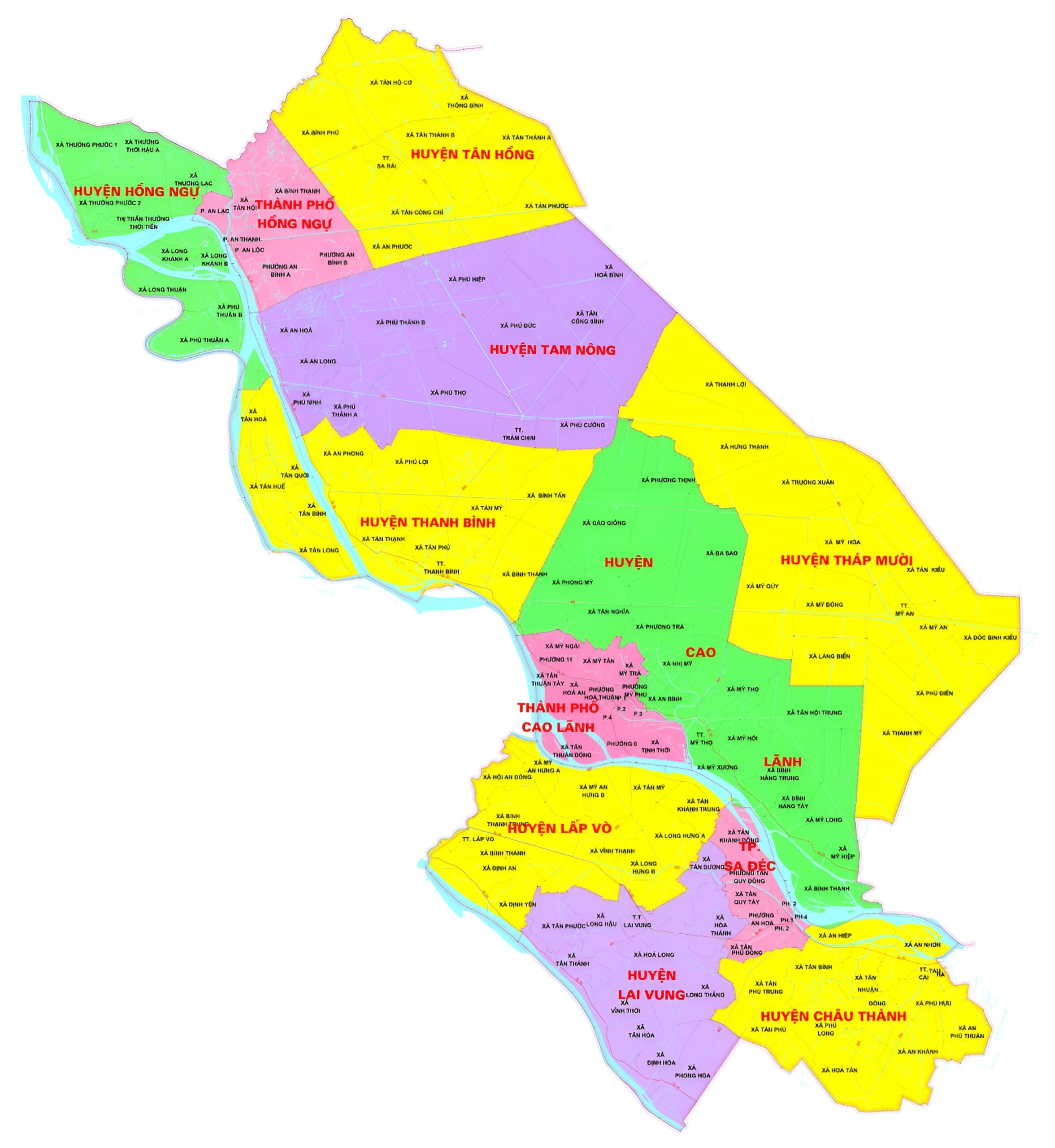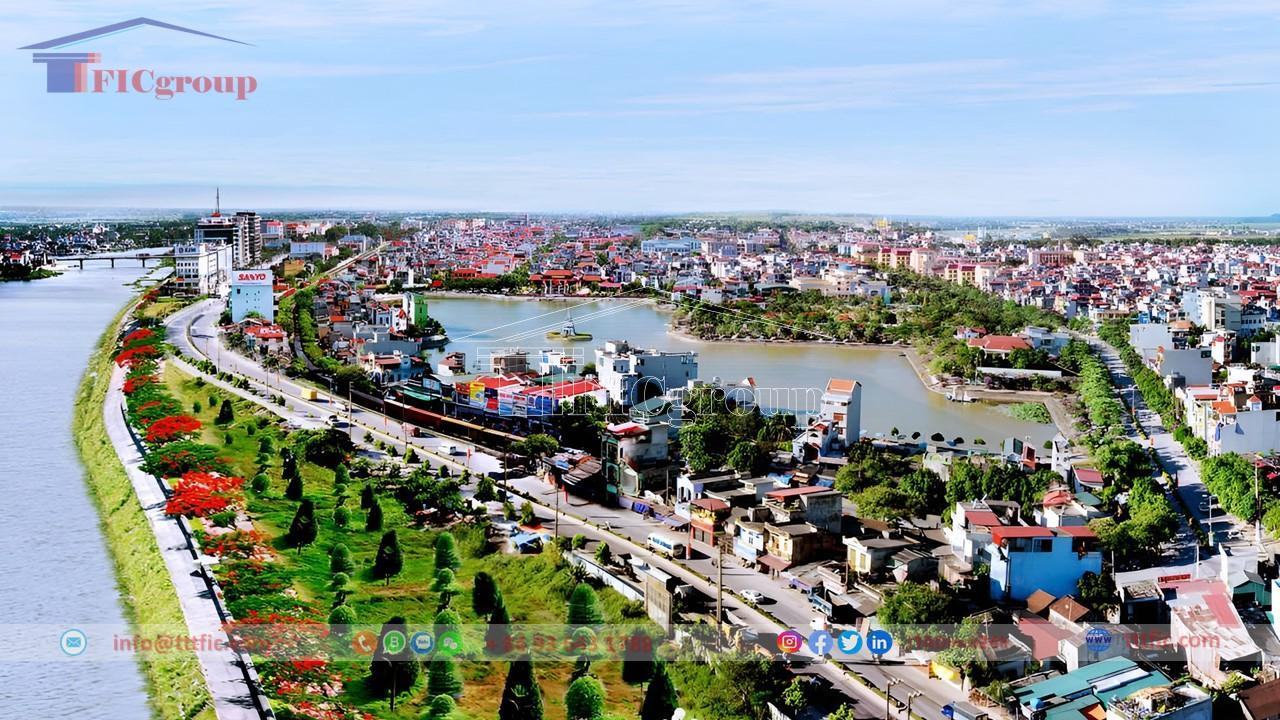
Sa Dec Industrial Park
- Investor: DONG THAP HOUSING AND INDUSTRIAL ZONE DEVELOPMENT INVESTMENT JOINT STOCK COMPANY
- Price: 180 USD/m2
- Area: 132 Ha
Dong Thap Province is a province located in the Mekong Delta, with a natural area of 3375.4 km2 and a population of over 1.6 million people (based on the 2008 census).To the north, the Province shares its border with the Kingdom of Cambodia, while Vinh Long and Can Tho City lie to the south, An Giang to the west, and Long An and Tien Giang to the east. The provincial capital of Dong Thap is currently the city of Cao Lanh.

Dong Thap Province is one of the 13 provinces in the Mekong Delta region and the only province that spans both banks of the Tien River.
An intricate system of rivers, canals, streams, and large lakes characterizes the province. The main river is the Tien River, a branch of the Mekong River, which runs through the province for a length of 132km. Along the banks of the Tien River, there is a network of intersecting canals and channels. The province boasts a well-connected infrastructure with over 300km of interprovincial roads and a network of navigable rivers and canals.
Dong Thap is situated in a tropical climate zone, uniformly covering the entire province. It experiences two distinct seasons: the rainy season from May to November and the dry season from December to April of the following year. The annual average temperature is 82.5%, with an average of 6.8 hours of sunshine per day. The average rainfall ranges from 1,170 to 1,520 mm, concentrated during the rainy season, accounting for 90-95% of the total annual precipitation. This climatic characteristic is relatively favorable for comprehensive agricultural development.

Dong Thap Province, nurtured by the fertile sediment brought by the Tien and Hau Rivers, cultivates essential crops and valuable agricultural and aquatic products for export, solidifying its esteemed status as the nation’s “rice granary.”. Moreover, the province holds great potential for short-term industrial crops such as sugarcane, cotton, tobacco, soybeans, as well as perennial fruit trees like Cao Lanh mango, Chau Thanh longan, Lai Vung mandarins, Phong Hoa pomelos, rambutans, milk apples, and custard apples that are available year-round.
In the past, the numerous marshes, ponds, swamps, lakes, and dense vegetation, including reeds, cattails, water chestnuts, lotus, water hyacinths, and palm trees, made the wilderness of the Dong Thap Muoi region renowned. This area served as the habitat for various wild animals, including snakes, turtles, frogs, water birds, crabs, and crocodiles.
In 2008, Dong Thap had a population of over 1.6 million people with a population density of 499 individuals per square kilometer. The Kinh ethnic group accounted for 99.3% of the population, while other ethnic groups such as the Chinese and Khmer made up 0.7% of the population.
The people of Dong Thap possess the distinctive characteristics commonly found in the Mekong Delta region: hardworking, kind-hearted, open-minded, generous, and welcoming to guests.
Dong Thap, adorned with expansive rice paddies stretching towards the horizon and a “floating season” brought forth by annual floods, is the cherished homeland of poetic lotus fields. In this captivating realm, the essence of the profound folk culture blossoms, giving rise to vibrant festivals rooted in the riverside and countryside. Among them, the Go Thap Festival, the Commemoration Ceremony of Scholar Nguyen Sinh Sac, the Sa Dec Flower Festival, and the bustling traditional craft villages stand as shining examples.
Dong Thap cuisine showcases the wild and rustic flavors of Dong Thap Muoi cuisine in particular and Southern Vietnamese cuisine in general, offering a wide range of famous specialties such as grilled snakehead fish, crazy fish hotpot with linh fish, gun-shaped flower salad with braised fish, dishes made from field frogs, and more. Furthermore, the province has gained renown for its plentiful supply of delectable fruits, including Cao Lanh mango, Phong Hoa pomelo, Lai Vung mandarin, and Chau Thanh longan, all of which are esteemed delicacies closely tied to Dong Thap.

Nowadays, visiting Dong Thap province is like returning to the roots of nature, thanks to the fresh and cool atmosphere of expansive, lush rice fields. Tourists come to pay their respects at historical sites such as the Tomb of Scholar Nguyen Sinh Sac, the Martyrs’ Monument, Go Thap Archaeological Area, Kien An Cung Pagoda, Tram Chim National Park in Tam Nong, Xeo Quit Historical Site, Tan Qui Dong Flower Village, and the fruit orchards in Cao Lanh, Chau Thanh, Lai Vung, and Thanh Hung.